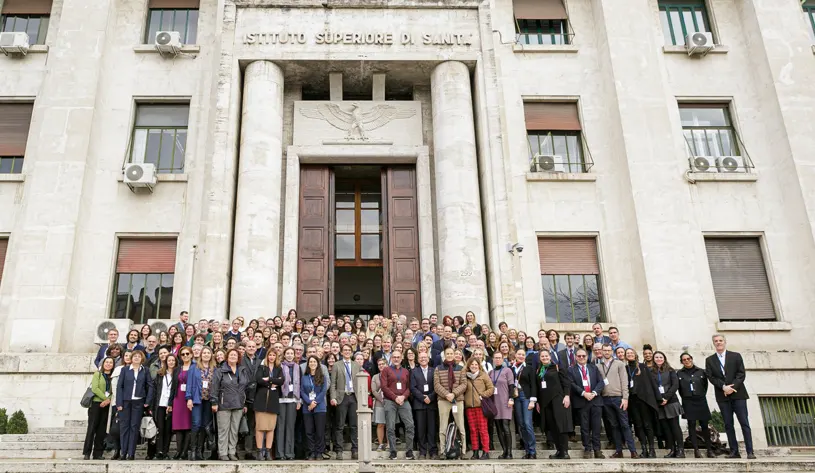JACARDI: Reducing the load of cardiovascular diseases and diabetes

CNIC and the Research Institute Hospital 12 de Octubre (i+12), representing SERMAS, the Madrid Health Service, joint-leaders of one of the working groups of the European Union Joint Action on Cardiovascular Disease and Diabetes (JACARDI), whose objective is to reduce the burden of cardiovascular diseases and diabete
JACARDI is a new four-year project with the participation of ministries, public health organizations, non-governmental organizations and universities that has the objective of helping EU Member States reduce the burden of cardiovascular diseases (CVD), diabetes and their associated risk factors for individuals and society.
Cardiovascular diseases are the main cause of death in the EU, affecting around 63 million people. The prevalence of diabetes has also drastically increased and the number of adults who live with the disease has almost doubled over the last decade, with 32.2 million diabetic people in 2019. These chronic diseases are a major threat for the health and wellbeing of people, but they also test healthcare systems and hinder social and economic development.
JACARDI has arisen as a united European response to the growing challenge of CVDs and diabetes. The project centres on implementing proven effective practices in the treatment of CVD and diabetes through implementation of 11 work packages and 143 pilot projects.
The initiative is coordinated by the ISS, the Italian National Health Service, and has received 53 million euros funding from the European Commission. It brings together 21 countries, including Ukraine, with the participation of 76 partners and over 300 experts in public health.
JACARDI will test and offer solutions throughout the ‘patient journey’ , including prevention, early detection, treatment, healthcare and self-management in order to achieve the following objectives:
- Improve health literacy and increase general awareness about CVD and diabetes.
- Implement effective prevention measures in primary prevention, detect and improve service pathways for CVDs and diabetes among high-risk groups.
- Optimize support for self-management and participation in the labour market of people diagnosed with CVD and diabetes.
- Improve the availability, quality and accessibility of data throughout the patient journey.
- Promote equity of access to health services and information, ensuring that all people have the same opportunities, regardless of their language ability, skills, age or situation in life.
JACARDI is a major step forward in the fight against CVD and diabetes in Europe. The approach prioritizes addressing complex health challenges in an inclusive way, with a focus on the social and economic factors that determine health, cultural diversity and equity

The project will identify the key social dimensions of inequalities in CVD and diabetes and develop a common methodology for the implementation and evaluation of its pilot projects. JACARDI places emphasis on local and transnational cooperation, knowledge exchange, the application of and support for sustainable practices to obtain impactful results, including an effective co-design between science and politics.
It also promotes gender equity in leadership and public health, advocating a collaborative, inclusive governance model that empowers younger generations and fosters healthier, more resilient communities that are fairer for millions of Europeans.
CNIC and the Research Institute Hospital 12 de Octubre (i+12) - SERMAS are working together in this action. The collaboration between the two institutions has meant that Spain co-leads one of JACARDI’s strategic lines, which will facilitate knowledge of the existing data on CVD and diabetes, standardize and harmonize the methods for data collection, and improve exchange mechanisms for the relevant data in order to create a dedicated network for diabetes and CVD registries in Europe.
The network will serve as a platform to share best practices between member states, fostering collaboration and supporting the design and implementation of strategies.
CNIC and the Research Institute Hospital 12 de Octubre (i+12) - SERMAS are also participating in the design and implementation of 4 pilot projects that will tackle questions such as gender differences in health or help for self-care of CVD patients.
According to Héctor Bueno, co-director of the working group, coordinator of the clinical area of hospitalization and of research at the Cardiology Service at 12 de Octubre Hospital, and leader of a CNIC research group, “it is essential to create registries that compile the necessary, up-to-date information so as to understand the cardiovascular health situation of the European population, the determining factors and the trends which will enable definition of the necessary improvements in policies and actions as well as the important questions for research.”
For her part, Fátima Sánchez-Cabo, head of the CNIC’s Bioinformatics Unit, believes “this action will provide us with the necessary tools to be able to effectively apply artificial intelligence to cardiovascular diseases.”.
JACARDI brings together 21 European countries, guaranteeing diversity in terms of cultural origin, public health priorities and health systems. The project aims to implement 142 pilot schemes that will reach millions of people in Europe and improve their healthcare. It is hoped that the broad geographical coverage and extensive pilot schemes implemented will provide a large amount of data for mutual learning and the identification of successful practices.













